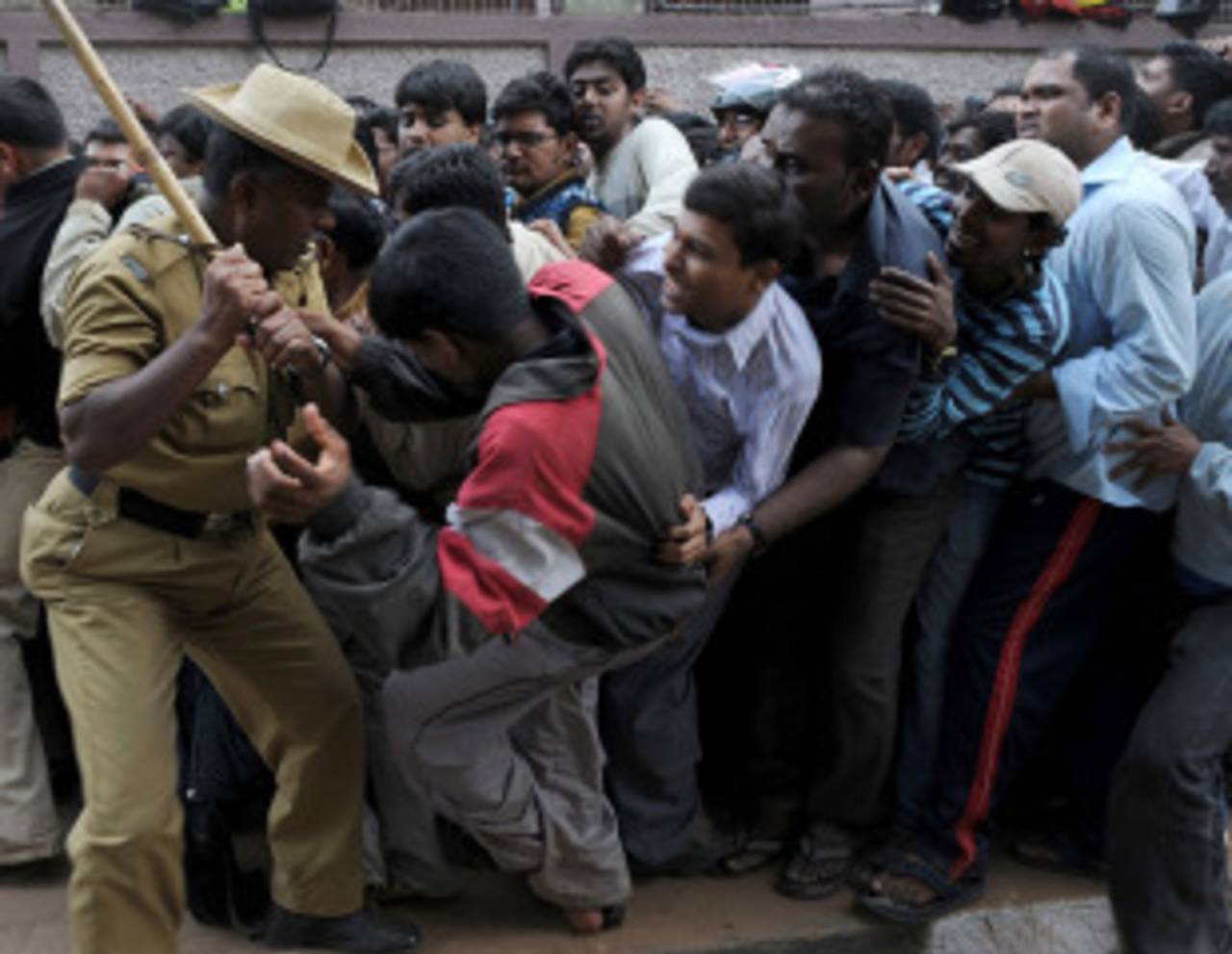The Chinnaswamy Stadium, on the day before the World Cup, looked exactly like what most Indian grounds look like 24 hours before a big game. Rush, bustle, loud volumes, greetings, anxiety. Except this time, there was an unusual sight. Former India cricketers in roles that usually never involve them after their careers end. They were not commentary assignments or coaching roles and it did not even concern the collection of complimentary tickets. Venkatesh Prasad was standing behind the closed glass doors of one of the boxes at ground level, addressing a meeting of the volunteers. Javagal Srinath was answering queries about television feed to the line of VIP boxes on the first floor. Anil Kumble was in his president's office answering phones as often as operators of emergency hotlines.
The Karnataka State Cricket Association (KSCA) is unusual compared to most others in India, not because some of India's most recent international retirees are at the apex of its administration. It is the association where cricketers, who belonged to the state's most elite, fought a full scale election, campaigning, dirty boots et al, and within months of being elected must deal with every hurdle involved in the staging of any important fixture in India. Ego clashes amongst 'stakeholders', ticket distribution wars, pressure from government bodies that supply water, electricity or security. The KSCA's cricketers have had to be hands on. Otherwise collapse would be inevitable. At the India - Australia practice match, vice-president Prasad was seen wandering around the stands asking spectators for the feedback about the services and what they needed. Kumble was ticking off a contractor about some wayward chairs in the media box. As the frenzy for the India v England match grew, secretary Srinath found himself dead centre of the tickets controversy.
On Saturday, he told of his own time in a similar queue. At ICC chief executive Haroon Lorgat's press conference, Srinath stepped in to take questions about the tickets and said that in 1987, he had queued outside the Chinnaswamy Stadium's green walls. "I was about 15 metres from the box office and I stood there for five hours. I couldn't get a ticket and I had to go back. And I was a genuine cricket fan." That bald statement told many stories and Srinath, went on, "I'm seeing the same system that has been around in 1987 still happening. Is that the fair way?"
In the 1980s, queues always lasted hours. To pay bills, to buy railways tickets, for any public services. Since then, the sad teenager outside the Chinnaswamy has acquired high office inside it and much of the rest of India has also moved on. Its richest and most popular sport, though, has not. Srinath said, "For 7000 tickets, there are 70,000 people standing at the box office. How do we manage? Is this the fair way? To have a box office where the absolute cricket fan would not have a ticket by the end of the day?"
He then told his interrogators that he would welcome any suggestions to sort out the issue in the future. None were instantly offered. The next question was put to him by a journalist from a regional newspaper, who asked Srinath if he could speak in Kannada, Karnataka's official language. The question was pretty much the same - tickets and the lathi charge - but what threw the audience off was when Srinath used the one word understood by most of the Indians in the room. In the middle of his answer, he folded his hands and people heard him say, "Kshama," to the reporter. It is the one word that people in public office find it very hard to say, and India's international cricketers, the Boston Brahmins of their community, are rarely heard using. It means, "Sorry."
